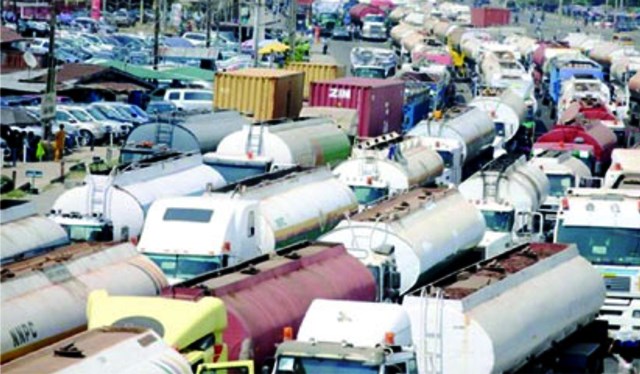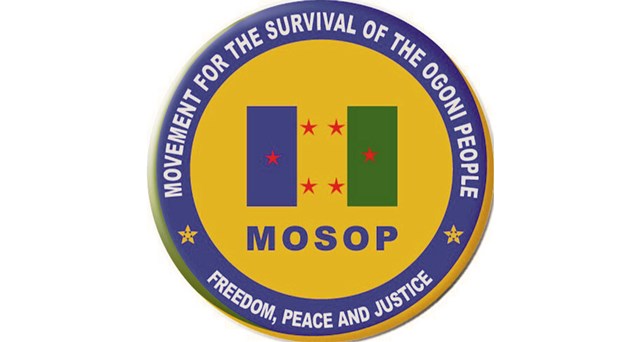Maritime
Smugglers Kill Customs Officer In Ogun

Rampaging smugglers terrorising the borders of Ogun State have killed a customs officer at Sango area of Ota and injured another during an encounter.
This is as some group of smugglers kidnapped and killed an officer of Nigeria Customs Service some months ago, also in Ogun State, with the security agents perfecting an arrest of the killers.
In a press statement made available to The Tide last Wednesday by the Public Relations Officer of the command, Abdullahi Maiwada, the Customs Area Controller, Michael Agbara said the officer was killed after an encounter with smugglers.
Maiwada who gave the name of the deceased officer as Hamisu Sani said another officer, Tijani John Michael was injured but was responding to treatment.
He said: “Officers of Nigeria Customs Service Ogun Command on routine patrol, based on credible information at about 02:30 hours intercepted eight reconstructed vehicles fully loaded with smuggled rice and kept in a hideout at Asero Community.
“In an attempt to lawfully secure the said items, the smugglers and their accomplice ambushed the Officers in a deadly like manner.
“Unfortunately during the encounter, one of the Officers, a Customs Assistant I, Hamisu Sani, sustained grievous injuries and paid the supreme price (died) in active Service. He has since been buried according to Islamic rites. Also, an Inspector of Customs, Tijani John Michel, sustained serious machete cut but is responding to treatment in the hospital.”
Although the NCS PRO said that two suspects in connection with the crime have been arrested by the police .
“Two suspects have been arrested by police and eight vehicles fully loaded with smuggled rice have been secured in connection with the incident at Customs House, Abeokuta for further investigation.
“While we commend the patriotic role of our sister agencies and law abiding citizens, we wish to categorically state that we will deploy all necessary apparatus to ensure that the perpetrators of this devilish act are brought to book to face the full wrath of the law.
“Finally, the reoccurrence of such form of hostilities and intimidation by smugglers and their accomplice on our officers and men will never distract us from vigorously discharging our statutory functions,” the statement said.
It would be recalled that a customs officer, Rasheed Abdulsalam, attached to the Federal Operations Unit, Zone A, Lagos was also kidnapped recently after a fierce clash with notorious smugglers.
Some of his colleagues also sustained varying degrees of injuries in the bloody anti-smuggling operation that occurred at night around Gateway Hotel, Ota, Ogun State.
Stories by Chinedu Wosu
Maritime
Waterways Safety: NIWA Wants Partnership With Govs

The Managing Director of National Inland Waterways Authority (NIWA), Mr. Bola Oyebamiji, has called for increased collaboration between the federal agency and state governments to enhance the safety and security of inland waterways transportation.
Speaking at a one-day consultative forum on safety and insecurities on inland waterways, organized by the Nigeria Transportation Commissioners’ Forum in Ilorin, Oyebamiji emphasized the critical role that safety and security play in fostering a thriving water transportation system.
The forum, themed “Prevalent Safety, Security Hazards and Practices in Inland Waterways: Passenger Transport Safety in Ilorin, Kwara State”, sought to address the pressing issues facing the inland waterways sector.
Oyebamiji acknowledged the ongoing efforts by NIWA to improve safety, such as the recent unveiling of the transportation code for public use, the inauguration of several operational assets including survey boats, gunboats, water ambulances, and a passenger ferry.
He also noted that safety campaigns have been launched across all operational bases, targeting local communities in their native languages.
The NIWA boss stated the support from the National Assembly, including the ongoing discussions on establishing coastal guards and the attention safety and security on inland waterways have received from the House Committee on Inland Waterways.
In his closing remarks, Oyebamiji appealed to the Commissioners for Transportation across relevant states to collaborate with NIWA in areas such as training, safety campaigns, infrastructure development, and financial empowerment.
He stressed that while the challenges are significant, they are surmountable through collective action.
Maritime
Coastal Guard Bill’ll Unlock Marine Blue Economy Potential -FG

The Federal Government has conveyed its support for the establishment of the National Coast Guard.
The Government also commended the proponents of the bill for having the hindsight to initiate a course of action that, when passed, will be the catalyst needed in unlocking the nation’s maritime potential.
In a statement by the Head of Press, and Public Relations for the ministry, Muhammad Tahir Zakari, Minister of Marine and Blue Economy, Adegboyega Oyetola, was reported to have made this known at the National Assembly complex at the 1-Day Public Hearing on National Coast Guard Bill (NCG).
The statement stated that the bill when passed, will guarantee maritime safety, sustainable marine resource development and enhance economic growth.
Highlighting the major need for the National Coast Guard, the Minister identified: Maritime safety; Environmental protection through enforcing environmental regulations and conservation of marine ecosystems; and Enforcement of civil maritime laws to uphold laws governing civil maritime activities and enforce fishing regulations while preventing illegal exploitation.
It also include search and rescue to maritime emergencies and also conduct timely search and rescue operations.
He cited a 2009 publication by the African Centre for Strategic Studies, which noted that 15 of the 21 independent maritime nations in sub-Saharan Africa have dedicated coast guards and identify themselves as such.
Despite this, none of these nations have Nigeria’s population or the extent of its inland waterways and coastline.
While acknowledging the significant role of the Nigerian Navy in safeguarding the Nigerian maritime space following the collaborative effort with the Ministry of Marine and Blue Economy in the Deep Blue Project, which has shown great results with zero piracy in Nigeria’s territorial water in the last three years.
He, however, stressed the need for the National Coast Guard to complement the efforts of the Nigerian Navy in playing a critical role in preventing accidents, crime, and other threats to maritime activities
“A vast coastline of 850 km, the equivalent of 10,000 km in two ways. It is also a place of rich and diverse economic sources.
“While these opportunities are promising, they also present challenges such as pollution, overfishing, and unsustainable use of marine resources. The proposed National Coast Guard is equipped to tackle these issues”, he stated.
He urged the Senate and the National Assembly to lend their full support to the bill, noting that, “Nigeria Coast Guard will act as a vital complement to the Navy, of fostering a safe and sustainable maritime environment”.
He appealed for the establishment of a flexible, adaptive implementation strategy that would evolve into a midwife for the bill to succeed, while urging those with reservations to see the pressing need of the institution.
Earlier during the hearing, the President of the Nigerian Senate, Godswill Akpabio, commended members of the Committee on Marine and Transport for their unwavering dedication in piloting the initiative and advocating for the establishment of the National Coast Guard Bill.
Akpabio, represented by Sen. Akintunde Yunus, said the essence of the bill was to make critical decisions that will guarantee the safety of the nation’s waterways and protect the marine resources.
He stated that “the establishment of the National Coast Guard is not merely a legislative formality, but a dire necessity”.
Speaking also, the Chairman, Senate Committee on Marine and Transport, Sen. Sanni Eshinlokun, said the Bill was first read in the Senate on the 3rd of October while the Senate at its plenary deliberated on the General Principles of the Bill.
Senator Eshinlokun said, “The Bill was read for the second time and referred to the Senate Committee on Marine Transport for further legislative action.
Maritime
Private Sector Should Drive Blue Economy -Bello

Former Executive Secretary of the Nigerian Shippers’ Council (NSC), Barr. Hassan Bello, has charged the Federal Government not to designate any of its agencies as the lead agency to drive the blue economy if it actually wants Nigeria to make progress in the sector.
Bello, who made this call in his remarks at the 10th anniversary, lecture and awards of the Primetime Reporters in Lagos, midweek, advised the Federal Government to avoid the mistake made during the Cabotage era when it designated an agency as lead agency and the rest was now history.
He said for the sector to succeed, it required everyone’s contribution, urging the Minister to allow the private sector to drive the blue economy.
According to him, “Two things which we must be very careful about is to make.mistake, like we did with cabotage. If we remember carefully, Cabotage was coastal and Inland shipping, but that inland shipping was not emphasized.
“It was just for supply of oil and gas to the mother vessel, we couldn’t trade as we were doing from Asaba to Baro in Niger State, or carry cement or even petroleum products. So, we cannot restrict that to customs.
“Secondly, don’t give the Blue Economy to an agency to say it is the lead agency because everybody must have contributions to the Blue Economy. As we want to do, we have seen agencies struggling to have seminars on Blue Economy, it’s not even a government thing.
“Allow the private sector to take over this blue economy, don’t create fantastic departments and overload into the private sector. This is what is our problem.
“When we had the Cabotage, it was a NIMASA thing and when you talk about Cabotage, no! don’t go there, what is your own with Cabotage? So, Cabotage was colonized, the Blue Economy should not be colonized. We should have the ramification of that Blue Economy to make sure that everything trickles down”.
He however, noted that there had been a lot of progress by the various organs of government even before the designation of the Blue Economy Ministry saying, “Blue Economy has always been there just as we had the red economy, which is characterized by China’s quest for export for state directed economy.
“We even have the grey economy, which is that which is informal. We have the green economy and all shades of economy. So, it’s not new that we have the Blue Economy, what has been the call by stakeholders is for us to have a ministry that will cater for transportation and transportation is a cardinal or even the paramount part of the Blue Economy.
“I know we have sustainable use of ocean resources and many other things, but when you talk about the Blue Economy, the central point is the use of ocean and the inland waterways and other resources for diversification of our economy as the Convener has said”.
“We have to be conscious, concerted and even calculated to make sure that it works for us. It’s not just fancy thing that there’s a ministry for blue economy. There must be active participation of stakeholders and the involvement of the private sector to harness the resources and not anything fancy or pretentious. The government must involve the private sector.
By: Stories by Nkpemenyie Mcdominic, Lagos
-
Niger Delta2 days ago
Association Boss Hails FG Over Pipeline Surveillance
-
Business2 days ago
SERAP Quizzes NNPCL Over N825bn, $2.5bn Refinery Repair Fund
-

 News2 days ago
News2 days agoMinimum wage’ll be reviewed in less than 2 yrs, says Minister
-
Sports1 day ago
Golfers To Converge For Sun Amateur Tourney In PH
-
Niger Delta2 days ago
Eno Urges Unity, Warns Against Politics Of Division In 2025
-
Business2 days ago
No Mandate To Revive National Carrier – Aviation Ministry
-

 News2 days ago
News2 days agoOgoni Day: MOSOP Unites, Demands Share from OML 11
-

 Politics1 day ago
Politics1 day agoAPP Wants INEC To Conduct By-Election To Fill Rivers Assembly Vacant Seats

